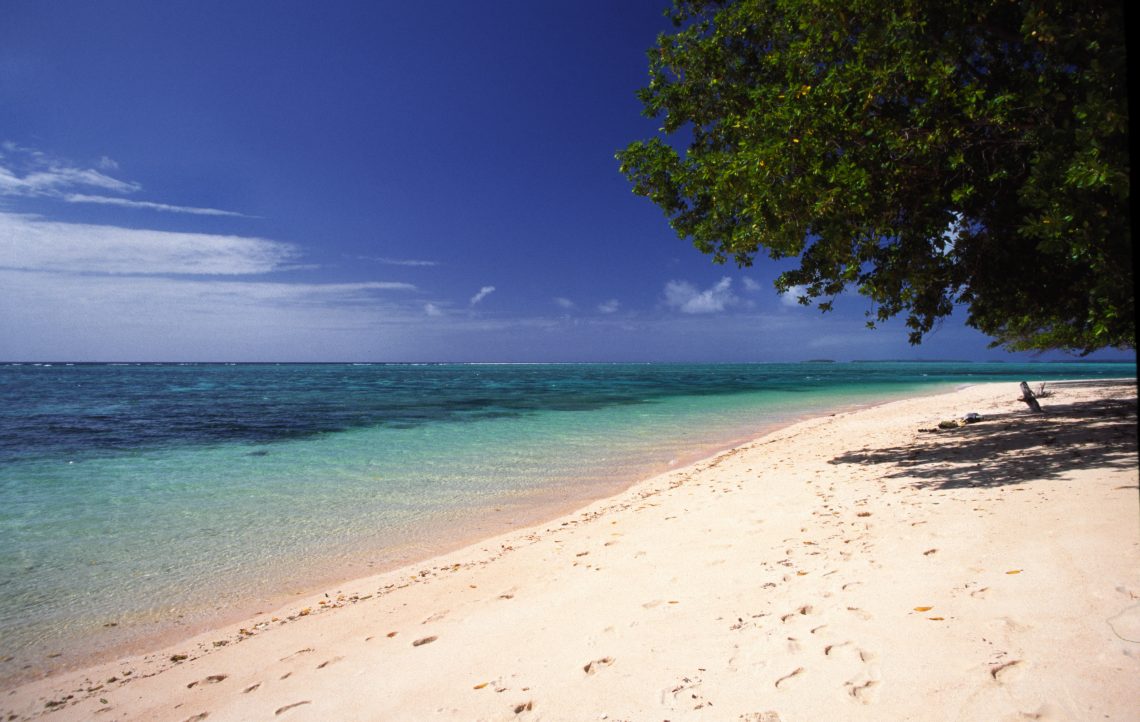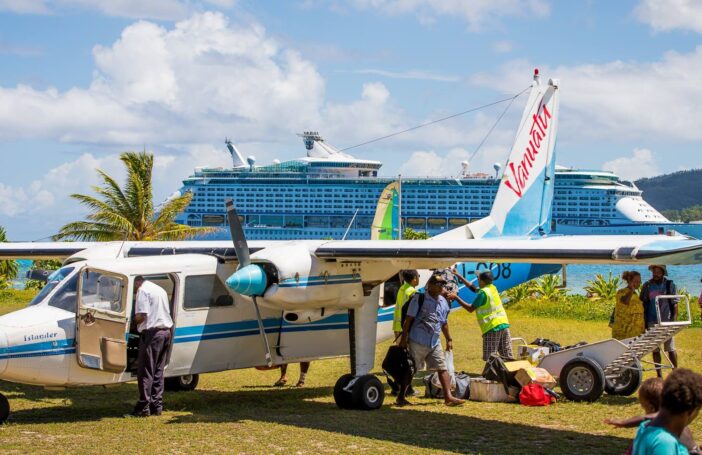The impact of COVID-19 on the world economy is going to be devastating. Indeed, COVID-19 has already decimated the Pacific island economies. Even the two largest economies in the region, Fiji and Papua New Guinea, do not have the fiscal space to provide immediate recovery packages for businesses to survive or income support to those facing unemployment. At best, the subsistence/informal economy, remittances and extended family/communal/social networks can cushion some of the negative impacts for a limited time. Post-COVID-19, recovery in the region is not likely to be rapid. For some countries, if not all, it could take many months or even years.
Precisely because of its severity, the COVID-19 crisis provides an opportunity for a rethink on questions regarding regionalism, regional cooperation, and integration. Some bold moves are needed to enhance the economic wellbeing of the region, and to strengthen geopolitical and strategic alliances and interests.
In 2005, the leaders of the Pacific Islands Forum endorsed the ‘Pacific Plan for strengthening regional cooperation and integration’. In 2013, the Pacific Plan was reviewed as directed by the Forum leaders. The review highlighted some fundamental issues. What stood out was the admission that the current structures for achieving regionalism and its benefits have not worked as expected.
Prior to the COVID-19 pandemic, the economic and social sustainability of the Pacific islands was already threatened by a global slow-down, expensive local climate change mitigation efforts, a lack of income/revenue diversity, and a dearth of educational and vocational training institutions capable of producing a workforce for an evolving marketplace. The COVID-19 pandemic has merely accentuated these effects on a geometric scale.
It is likely that the accelerated adverse economic effects generated by the pandemic, compounded further by susceptibility to severe weather conditions, will further expose Pacific islands to exploitation by multinationals and some large nations. This has the potential to shape the security, trade, and even sovereignty paradigms for the region for a long time. Within this context, a regional approach that includes Australia and New Zealand can mitigate these vulnerabilities and strengthen Pacific bonds.
Each one of the Pacific island nations faces risks, whether they are economic, environmental, health or political. To date, theyhave addressed these risks as per the abilities and capacities of each country. But the Pacific island nations, and for that matter most developing nations, lack the resources to deal with the unprecedented scale at which responses are now required. Also, there is very little capacity for these countries to respond to more than one crisis at a time.
Australia and New Zealand also stand to benefit greatly by being a part of a regional approach that will not only yield greater benefits for economic assistance provided, but will also be able to address the issue of multinationals and other bigger countries stepping into the void created by these extraordinary events.
A regional approach between Pacific island countries and Australia and New Zealand does not mean other foreign relationships should be ignored. Indeed countries like Singapore, South Korea and Taiwan continue to be excellent partners to many Pacific countries, especially in the areas of science and technology, agriculture, and health support. Taiwan and South Korea’s economic success and their recent ability to deal with COVID-19 in an efficient manner indicate why Pacific countries stand to benefit by engaging fully with those countries.
Unfortunately, some Pacific island leaders have found it convenient to bash Australia and New Zealand on issues of climate change and sovereignty. Some Pacific islands also find Australia and New Zealand irritants when it comes to their own poor record on democracy, good governance and human rights. Some even went to the extent of wanting Australia and New Zealand out of the Forum. However, there is little doubt that the future of the Pacific countries lies with a deeper and more meaningful integration with our old and trusted allies, Australia and New Zealand.
On their part, these two countries have to realise that investment in, and deeper integration with, Pacific island countries would be mutually beneficial. The ties can be facilitated through an Australia and New Zealand and Pacific island Community. It could possibly include a Pacific Parliament, to achieve not just fuller and deeper economic integration but some political integration as well.
Implementation will not be easy. There will be concerns about loss of sovereignty. All leaders, however, should prioritise a better quality of life for their people above the loss of some elements of their sovereignty.
A Pacific Community is not a new idea, but it is not one that has gained traction in the past. The current crisis is an opportunity for the countries of our region to reset, step-up, and re-model their relationships. The following may be good starting points:
- Pacific leaders should immediately sign and ratify the PACER Plus agreement. This agreement could be more important in the post COVID-19 phase and especially in the medium- to long-term. We can increase the volume of trade and investment as a group. Of course, some would benefit more than the others but everyone could still be winners.
- Australia and New Zealand should provide the Pacific islands with a comprehensive economic package, similar to what they are providing for their businesses and people. This package could be a small percentage of the packages that both countries have provided to their own people. This would save small- and medium-sized enterprises in the Pacific islands and provide income support to many who are losing their livelihoods.
- The Pacific countries, Australia, and New Zealand should set up a Pacific Parliament with elected members as soon as feasible in the post COVID-19 environment.
COVID-19 is a health and economic disaster, yes. But it also presents an opportunity for reflection, renewal, and restrengthening. If we are bold and imaginative enough to let go of historical doubts and suspicions, we can work towards a brighter and stronger future with renewed zeal.





The Pacer agreement is a good starting point. A Pacific community sounds like a great idea. One of the problems that will inevitably arise is, who will be the representatives of such an august body? Will representatives be the best (informed) persons or simply those with connections seeking a well-paid position in another toothless bureaucracy?
The alternative model of finance as a panacea is also fraught with the issues surrounding corruption and misappropriation of funds.
A pacific community should have elected representatives with limited tenure. A charter for education and health services across the pacific would be an imperative, as would a news network to keep the populace-at-large informed about the proposals and achievements of a pacific community. And finally, long term strategies for the pacific community would need to deal with global warming, maintenance of cultural identities, and policing project agreements.
I thank the Honourable Member and Professor for his input into the ongoing discussion but I believe that another regional body/institution is not the approach we should be making at this time or an economic package of grants or even worse new loans. The answer is finance and not politics. If we go back to the last few years of discussions at the Forum Economic Ministers Meetings we will see that the issue of the Pacific Resilience Facility, which in one of its original forms, had a regional stabilisation mechanism included in the proposal, plus a private sector and community fund to support specific actions. For the region, the support of national decision-making and governance needs to be supported and strengthened to enable sound policy and decisions. The thing that is missing is finance that is independent of the World Bank, IMF and ADB approach to loans funding loans. Pacific countries have a limited ability to borrow and act fiscally at this time. Hence, a regional fund controlled by Pacific Governments is the best way to support Pacific Governments and sustain expenditures in a time of great economic uncertainty and challenge.
Human beings are smart monkeys. We often create trouble wherever there is opportunity. Creating financial opportunity will inadvertently bring about conflicts. Hence to manage opportunities, financial or economic, well-established mechanisms are needed. Pacific Parliament may be a good way to go if we were to establish any financial system to address situations like Covid-19. Even when PICs already have a few well-structured Pacific institutions, they do not have effective jurisdiction on matters of finance, and social and economic policies. This is what the Pacific Parliament might be able to achieve, but, indeed it requires financial backing or more appropriately, financial opportunities. Which one comes first is immaterial.
Of course, without jurisdiction and established governance processes such institutions would be messy. So a governing institution is indeed necessary which not only manages resources but also has functional jurisdiction. Therefore, a sincere start needs to be made and I think this is the best opportunity to make serious moves with commitment.